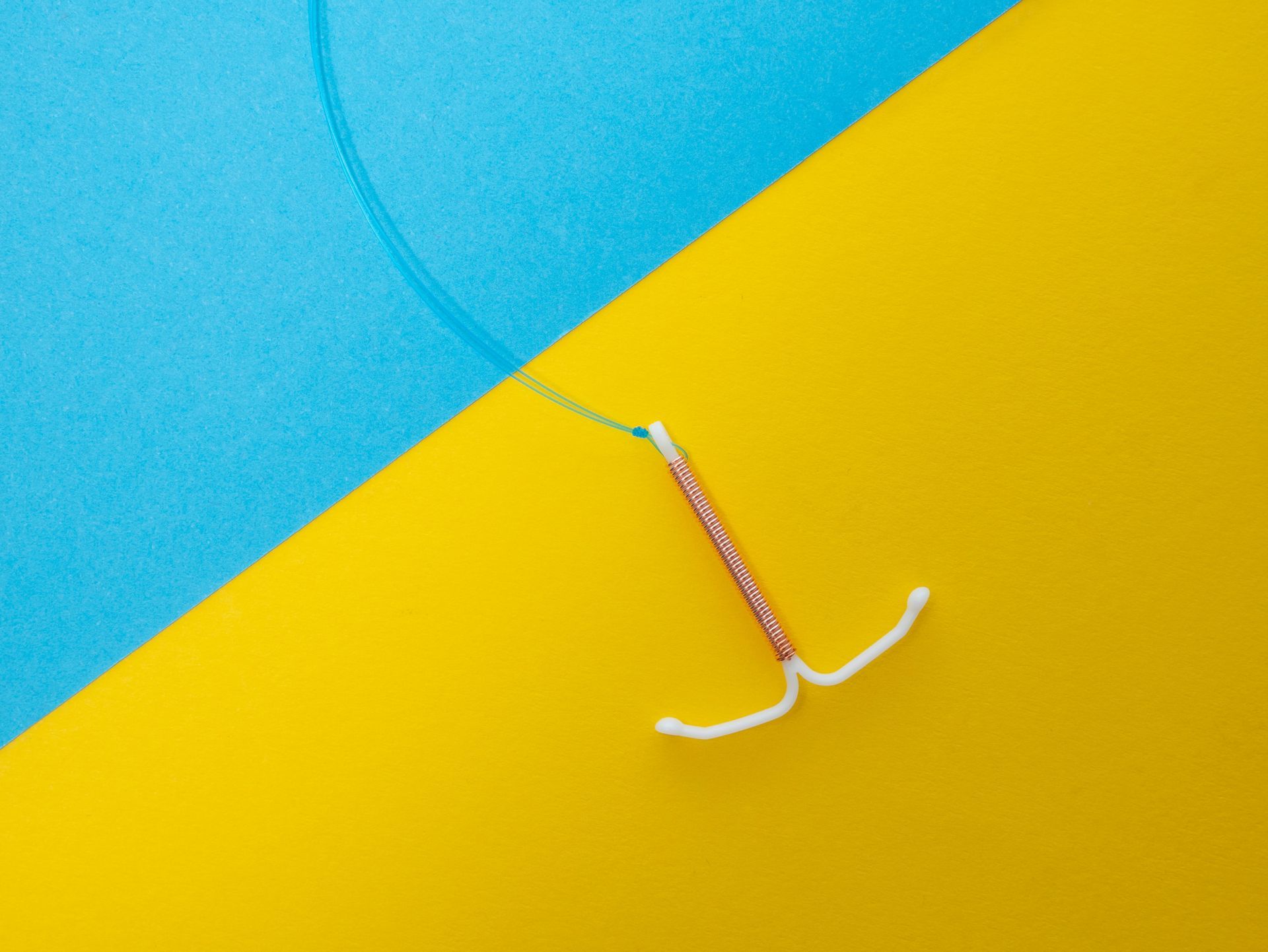How to make the difficult decision between Copper or Hormonal IUDs
The Main Difference Between Hormonal and Copper IUDs
If you are considering various
forms of birth control to avoid pregnancy, the intrauterine device or IUD has come up. IUD is a common and well-received form of long-lasting, reversible contraception (LARC).
IUDs are small, T-shaped birth control devices that a physician inserts into the uterus to prevent pregnancy. They can take the place of an oral contraceptive pill. There are two primary forms of IUD to consider: hormonal and copper.
Both have one goal – to interfere with the fertilization of an egg to prevent pregnancy. So, how do you choose the right intrauterine device?
The answer is to understand each one and then talk to your doctor. While the copper IUD and the hormonal one operate similarly, they differ significantly.
Hormonal IUD
A hormonal IUD comes with a synthetic hormone, similar to an oral birth control pill. It releases the hormone into your blood over time to help prevent pregnancy.
This synthetic hormone thickens the uterus and thins the lining, creating an environment that does not support pregnancy. In addition, it stops ovulation, which is the release of the egg. Without an egg, there can be no fertilization.
Copper IUD
Copper IUDs are non hormonal birth control forms because they do not have synthetic hormones. The copper IUD contraception device disrupts the progression of the sperm, so they can't reach the egg. It takes sperm to fertilize an egg, which results in contraception, and the copper IUD stops the sperm before they get there.
What is the Same?
These two types of IUD birth control are made differently but act the same in many ways to prevent pregnancy. For example, they have almost the same level of effectiveness (over 99 percent). As a result, the
chance of pregnancy with either is slim.
They are also both safe forms of contraception for most—however, not all women like using a hormonal device and the side effects that come with it.
Finally, neither a copper nor a hormonal IUD will prevent the spread of sexually transmitted diseases. That is not their purpose. They block contraception to prevent pregnancy.
The insertion process is the same for both contraception products, as well. When the time comes for insertion, the doctor may use an applicator tube, which goes into the uterus. Some IUDs like the Flexi-T do not use an applicator tube for insertion. This is because the “arms” of the intrauterine device are very soft and flexible. When in place, the arms of the intrauterine device unfold and secure the device inside the uterus. During insertion, you might feel some pressure and experience cramping.
Removal is similar and is not something you should try to do alone. The IUD contraception device will have a string. The doctor will use a tool to reach the string and pull the IUD out. The arms will fold as it slides down.
What is the Difference?
The two primary differences are longevity and how they may affect your periods. Also, some types of hormonal IUDs can work for emergency contraception. If you need emergency contraception, you will need a specific type of hormonal IUD. A copper IUD will not provide emergency contraception.
How Long Do They Last?
Both a copper and hormonal IUD are long-lasting. The hormonal product, however, lasts between three- five years compared to 5-10 years for the copper IUD. That doesn't mean they have to stay in that long, though. Women can choose to have either device removed at any time. So, if you want to try to have a baby, just ask the doctor to remove the IUD.
How Will They Affect My Period Differently?
The hormonal IUD releases a synthetic hormone into the blood that stops ovulation. That means women who use one will likely have lighter periods or, for about 20 percent of users, they stop altogether. This is why some women get the IUD to treat painful or heavy periods.
The copper IUD may or may not cause heavier periods and cramping. Some women don't even notice the IUD is there, though.
What Are the Main Factors to Consider
Clearly, these two devices take a different approach to produce the same result, so how do you choose? There are several factors to consider when making this choice.
Length of Use
The copper IUD is the best choice if you want to avoid pregnancy by using birth control for longer than three years. It can last between 5-10 years.
Potential Side Effects
While there are pros and cons to each type of device, hormonal IUDs tend to have more negative side effects. Women who use a hormonal IUD as birth control may experience the following:
- Acne
- Headaches
- Tender breasts
- Weight gain
- Changes in mood
- Cramping
- Irregular bleeding
There are fewer side effects with a copper IUD contraception device. Some women experience heavier periods and cramping, but since there is no hormone, the copper IUD should not cause mood changes and other side effects associated with progestin.
Time to Effectiveness
Since a copper IUD relies on copper for birth control, it effectively protects you against pregnancy immediately. A hormonal IUD is not effective for at least five days. It takes that long for the hormone to have an impact. So, if you need something immediately, the copper IUD is the best option.
Cost
Cost is always a concern when you are considering birth control. The upfront cost of a copper IUD is generally more affordable, but actual cost may differ depending on your insurance coverage. But the copper IUD lasts longer, so, ultimately, it is more cost-effective.
Reason for Wanting an IUD
Hormonal IUDs are sometimes an effective treatment for women with painful periods. It can be part of the care plan for endometriosis or polycystic ovary syndrome (PCOS). However, the copper IUD will not help to relieve period issues.
You Want to Avoid Taking Hormones
Not every woman tolerates or trusts synthetic hormones. It may be why they choose an IUD over other forms of birth control. A copper IUD is an effective alternative if you want a nonhormonal solution.
Ultimately, which type of IUD is the right choice for you is a decision you should make with your doctor. If you prefer a copper IUD for whatever reason, let the doctor know. Then, you can work together to decide if it is your best option.
Flexi-T is a non hormonal IUD that has just one active ingredient – copper. Find out more about Flexi-T today by visiting our website.













